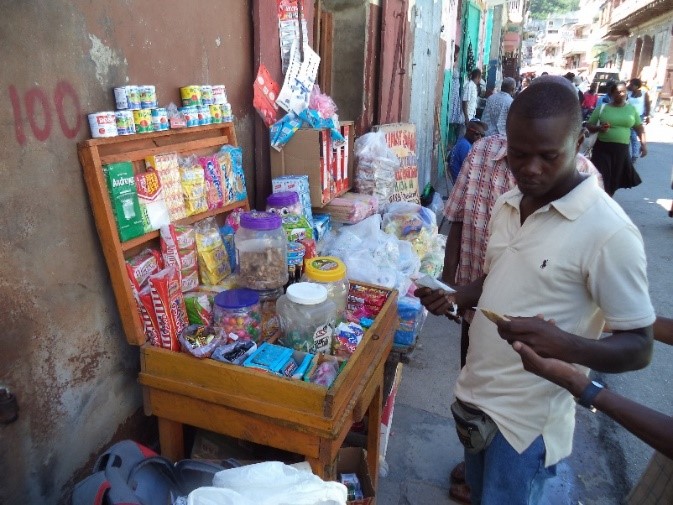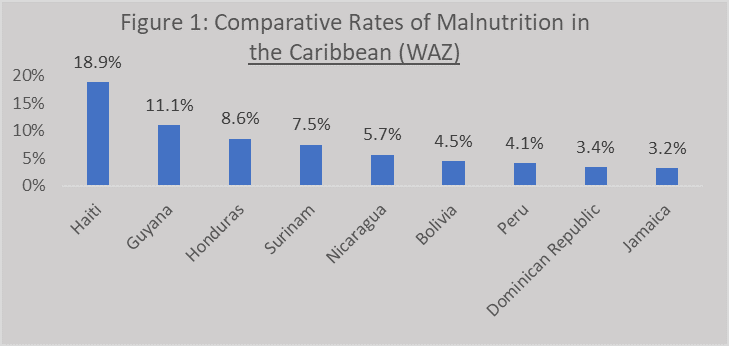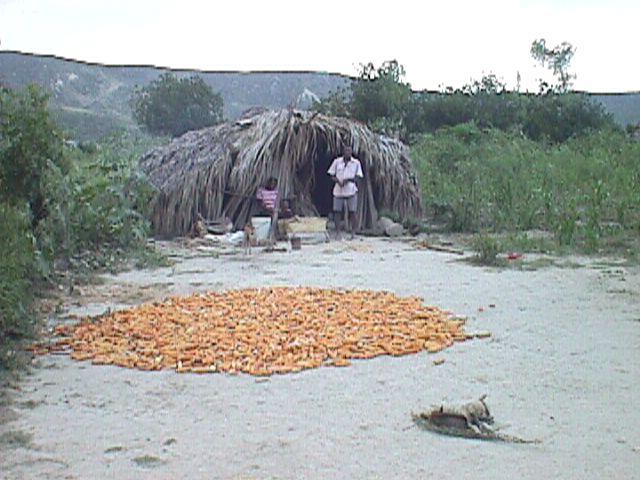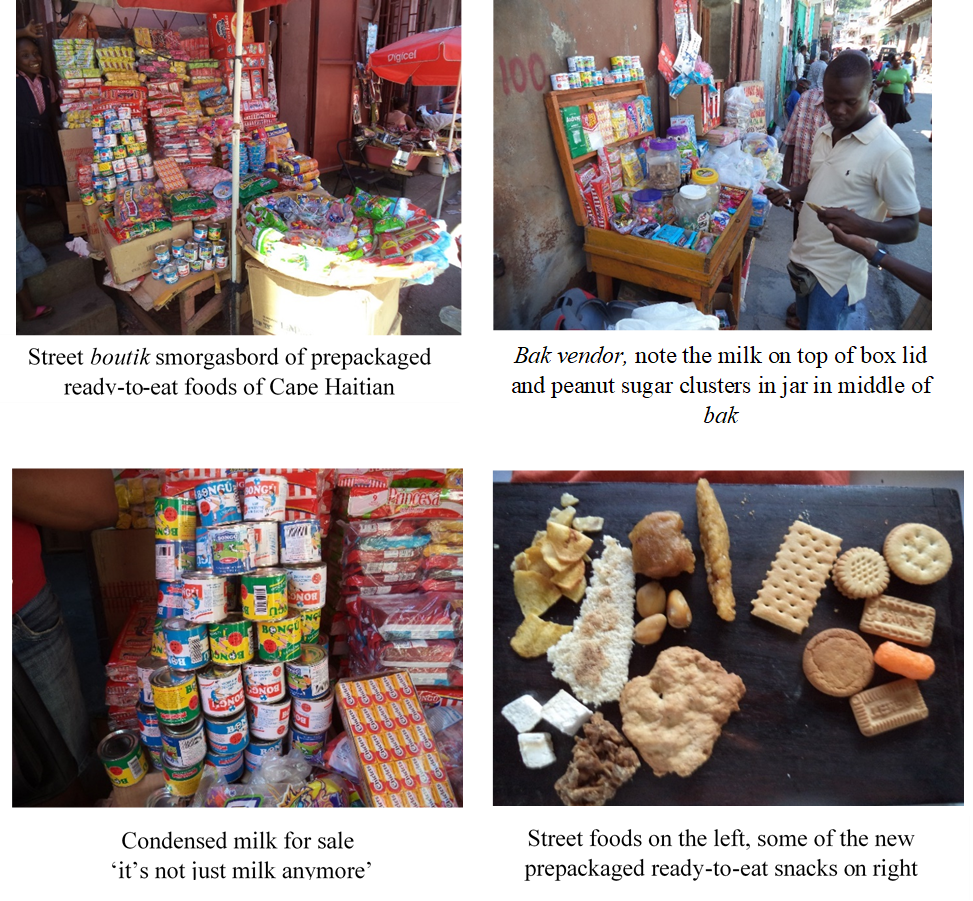Evaluation of Local Purchasing and School Canteen Pilot Project in Petite Riviere de Nippes Report 3 (of 3)
This is the third of three reports that were part of a study commissioned by WFP to evaluate the MENFP (Haitian Ministry of Education) pilot project for Local Procurement School Feeding in Nippes. The research was conducted under the auspices of Socio-Dig, a Haiti-based research company. Despite the cost of the research and an abundanceRead More
Evaluation of Local Purchasing and School Canteen Pilot Project in Petite Riviere de Nippes Report 1 (of 3)
This is the first of three reports that were part of a study commissioned by WFP to evaluate the MENFP (Haitian Ministry of Education) pilot project for Local Procurement School Feeding in Nippes. The research was conducted under the auspices of Socio-Dig, a Haiti-based research company. Despite the cost of the research and an abundanceRead More
Snacks, Meals, Prices, and Nutritional Content for Proposed Locally Procured School Feeding Program in Haiti
This article addresses the prospects for true, locally procured meals for a national school feeding program, something that does not yet exist. We present a series of the most commonly available local Haitian foods together with street costs and nutritional analysis. The suggestion is that prepared food containing twice the calories and protein available inRead More
Haiti Anthropology Brief: Haiti Crops, Nutrition, and Prospects for Food Sovereignty
If Haitians are to produce carbohydrates and proteins in quantities competitive with US production of crops best suited to the North American climate and soils, then they will have to begin by doing the same that US farmers do, focus on crops best suited to be grown in Haiti. Yet, a puzzling thing about theRead More
Port-au-Prince Haiti Merchant Monopoly on Bad Snack Foods
The ingredients for prepackaged snack foods on the Haitian market are entirely imported, of low quality and low nutritional value. Their growing role as a main source of food for lower-income Haitians, especially school children, is a threat to the health of the population. And there is little anyone can do about it. Or perhapsRead More
Haiti Anthropology Brief: Institutional Reactions to Food Scarcity and Nutritional Crisis in Haiti
Going back some 50 years, there have been a series of international interventions meant to blunt the impact of food scarcity and nutritional crisis on impoverished Haitians, particularly mothers and children. The interventions include food aid, feeding strategies, introduction of fortified foods, and promotion of improved cultivars. This article summarizes these interventions, provides a reviewRead More
Anthropological Brief: Understanding Infant Nutritional Challenges in Haiti
Infants in Haiti face an especially daunting set of nutritional challenges. The 1,000 days from conception to a child’s second birthday are the most critical period of a child’s physio-intellectual development. Children who are well nourished during this period become healthier and more intelligent adults who in turn are better able to feed and careRead More
Adapting to Hunger in Haiti: Socialization for Scarcity
I have added this article specifically for the many aid workers who come to help in Haiti but are unaware of the highly patterned and logical strategies of survival that can be summarized under the rubric, “Socialization for Scarcity.” On the one hand, aid workers often mistakenly interpret rural Haitian individuals and households to beRead More
Street Food in Haiti
This article describes and attempts to explain the recent growth in Haiti’s street food cottage industries. Underlying the growth in street foods is urbanization and challenges that come with it. The challenges can be summed up as, “The Food Preparation Conundrum,” which can be further broken down into problems that the the street food industryRead More
Prepackaged Industrial Snack Food Industry in Haiti
Imported snack foods are another solution to what I have defined elsewhere as the Food Preparation Conundrum (The Storage problem, The Water Problem, The Fuel Problem, The Labor Problem) that has come about with rapid urbanization of the past 50 years. They are inexpensive, ready to eat, available everywhere, have a long shelf-life and areRead More













